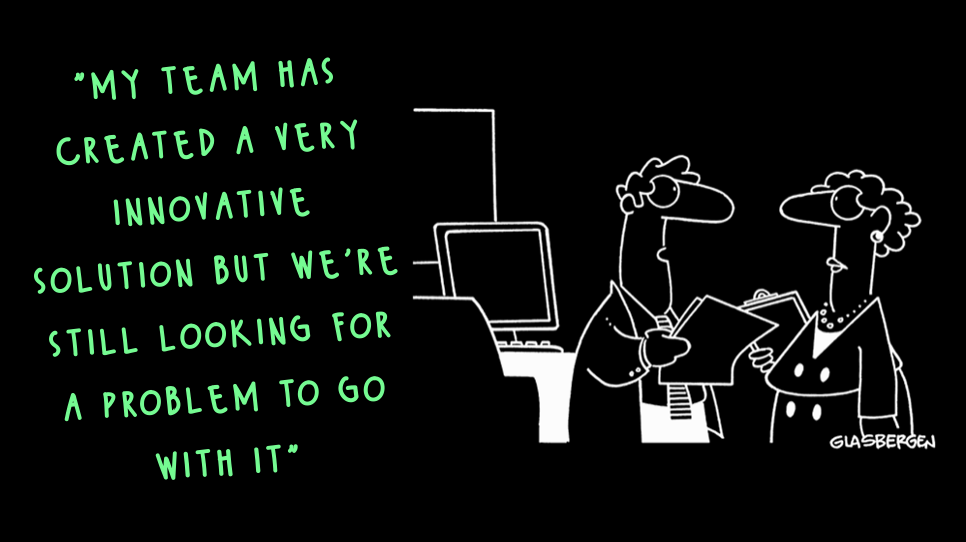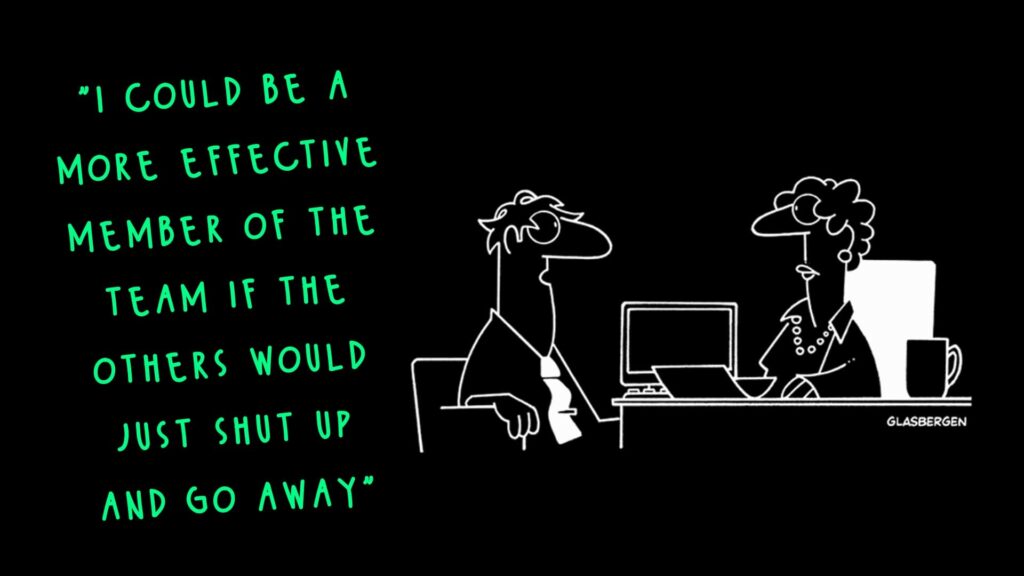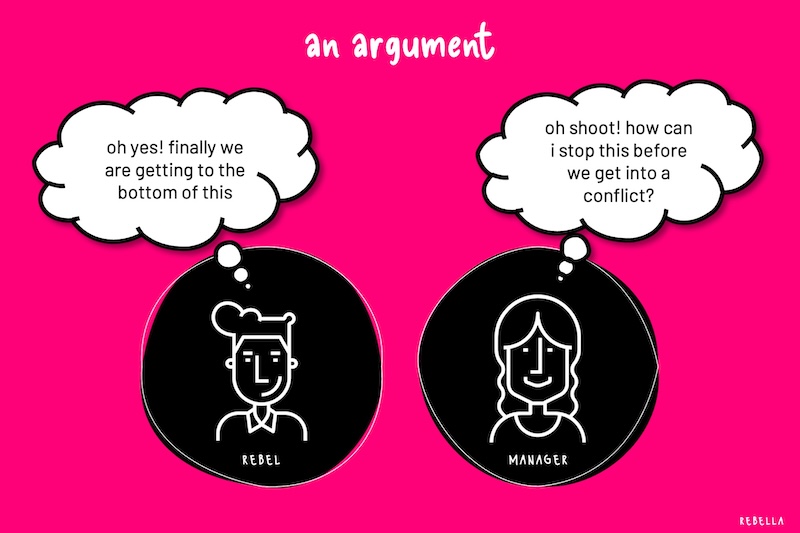
Dr Rebel: It's a misunderstanding that rebels love to argue
Today’s question: How can I disagree more productively?
Many people remain silent, even when they see a better way, because they don’t want to seem difficult, create tension, or burn bridges. But disagreement doesn’t have to be divisive. When approached with respect and curiosity, it actually deepens collaboration.
But it’s almost an art to disagree constructively.
Conflict seekers and conflict avoiders
First, it’s good to understand that some people love conflict while others want to avoid it at all costs.
- Conflict seekers confront issues to resolve them quickly and are willing to say it like it is, even when that can be confronting. They get a little excited and lean in when the tension gets high in a room. Seekers favour clear, forthright dialogue.
- Conflict avoiders value relationships and harmony over directness and honesty. They often experience anxiety or stress when faced with conflict and prefer to withdraw, delay, or suppress issues. Rather than addressing them directly, avoiders may use subtle cues, passive-aggressiveness, or silence to express dissatisfaction.
What type are you?
While the natural tendency of conflict avoiders is to remain silent or walk away from an argument, conflict seekers want to go all in. Here are five questions you can ask yourself to know your preference*:
- How do I typically feel when conflict arises—energised or anxious?
- Do I address issues directly or wait in hopes that they will resolve them on their own?
- Am I more concerned with being understood or keeping the peace?
- Do I often replay arguments in my head or try to forget them quickly
- When someone disagrees with me, do I lean in or pull back?
* Please note that this is not an either/or trait, but it is more of a spectrum.
Constructive or destructive
Conflict seekers have to watch that they are not dominating the conversation, that they’re not just doing it for sport, and that sometimes, letting the conversation go is the right thing to do. Conflict avoiders should understand that ignoring or walking away from the situation can worsen things. So, be aware of your default response, and think twice before you act.
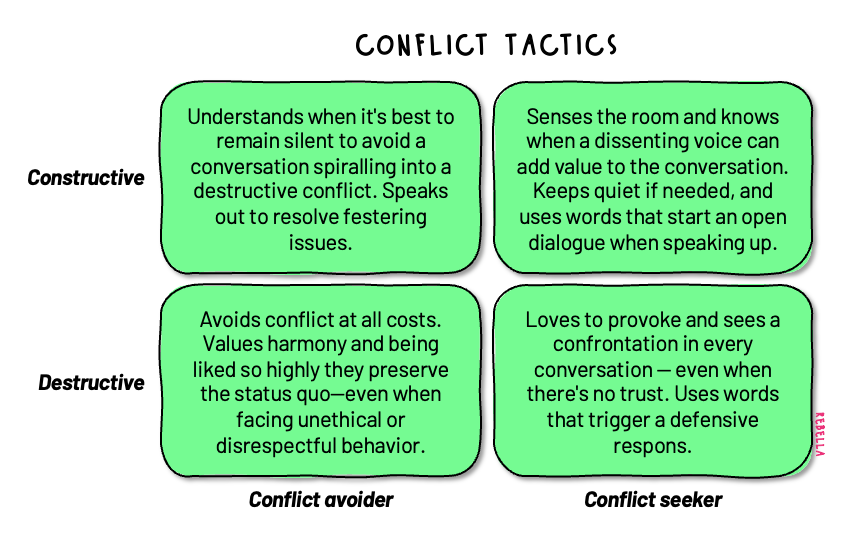
Words matter
Disagreement does not have to be destructive. The most constructive conversations often begin not with proving a point but with pausing to understand. Whenever you decide to speak up, the words you use can play a huge role.
Here are eleven things you can say to avoid being misunderstood:
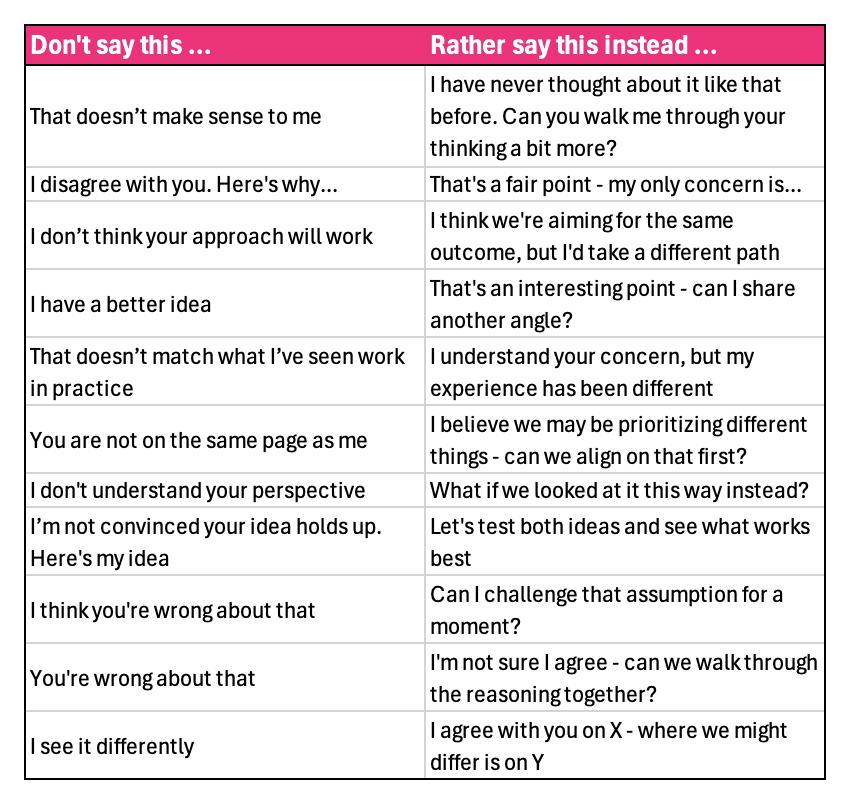

do you have a burning question for dr rebel?

